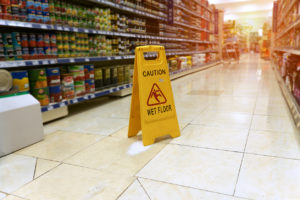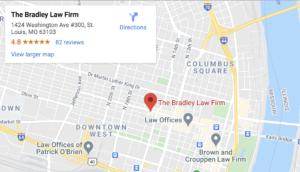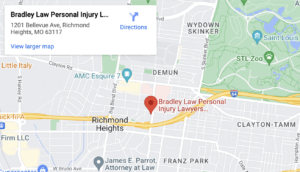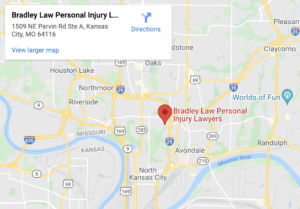
Premises liability refers to the legal responsibility a property owner has to maintain their property in a safe condition for guests. Slips and falls are one of the most common forms of premises liability.
Not only can landowners be held responsible under premises liability, land possessors, such as a person renting a house or a store owner leasing a facility, may also be liable.
Table of Contents
How Do I Prove Premises Liability?
To prove a claim for premises liability, the injured person must establish four elements:
- The property owner owed the person a duty of care;
- The property owner breached the duty of care;
- The breached cause the person harm; and
- The person suffered damages.
In Missouri, the exact duty of care depends on a person’s reason for being on the property.
There are three types of visitors:
- Invitees. These are people the owner invites onto their property for business purposes. For instance, customers in a store or restaurant are invitees.
- Licensees. These are social guests that the owner has allowed on their property for non-business purposes. Having a friend over for dinner or entertaining neighbors are examples.
- Trespassers. People that do not have permission to be on the property are trespassers.
Property owners owe these types of visitors different duties of care.
Invitees
Missouri law provides that a landowner “owes invitees the duty to exercise reasonable care to protect them against both known dangers and those that would be revealed by inspection.” This is a high standard that requires property owners to regularly inspect their premises for hazards and fix or warn of known hazards.
Licensees
For licensees, the landowner owes a ”duty to make safe dangers of which the [owner or] possessor is aware.” In other words, if the owner knows of a danger, they have to take reasonable steps to protect licensees from it.
Unlike with invitees, there is no duty to look for other possible dangers. Property owners can generally warn licensees of a danger to satisfy their duty.
Trespassers
Pursuant to Missouri Revised Statute section 537.351, a landowner “owes no duty of care to a trespasser.” There are, however, some exceptions.
Intentional Harm
The landowner is not allowed to engage in conduct “harming the trespasser by an intentional, willful, or wanton act.” However, they “may use justifiable force to repel a criminal trespasser.”
Children
The landowner owes a higher duty of care to children trespassers.
If a child trespassing on land is injured by an “attractive nuisance,” such as a swimming pool, the landowner may be liable if:
- The owner knew or should have known that children may be trespassing on their property;
- The dangerous artificial condition could involve a reasonable risk of death or serious injury to children;
- The child was too young to realize the danger posed by the condition;
- The use of the condition to the landowner was slight compared to the risk of harming children; and
- The owner failed to exercise reasonable care to remove the condition or to protect children from its dangers.
Old appliances, trampolines, and tree forts are other examples of a possible attractive nuisance.
Constant Trespassing and Actual Knowledge
Property owners may owe a duty to trespassers if they knew or should have known that trespassers consistently intrude on their land near a hidden danger on the property. In these cases, a property owner must warn a known trespasser of the danger. An owner has a duty to exercise reasonable care in conducting active operations on the land when a known trespasser is present.
An Example of Premises Liability
Assume you own a grocery store, and you’ve just updated your fire suppression system by installing new ceiling sprinklers. The day after the system is installed, you notice that sometimes the new sprinklers are dripping water onto the floor, creating slip and fall hazards. You call the company that installed the sprinklers, and they tell you that it’s normal for them to drip the first 72 hours after installation.
The next morning, you notice a sprinkler is dripping in aisle seven. You have an associate mop up the area and place a “slippery when wet sign.” Later that morning, a person slips in another pool of water from a different sprinkler, and the person is severely injured.
What is your liability? That depends on the status of the person who was injured. If it was an invitee, like a customer, then you may be liable. This is because after you cleaned up the initial pool of water from the sprinkler earlier in the morning, you didn’t set up a procedure for employees to monitor the system for other potential leaks. In other words, you had a duty to seek out additional leaks and did not.
If the person is a licensee, it’s a gray area. One could argue that due to your discussions with the system installer, you should have put in place a plan to reasonably deal with future leaks.
If the person injured is a trespassing robber who slipped and fell, you likely would not be liable. A team of personal injury attorneys can help you with this.
Premises Liability Lawyers
If you’ve been injured while being present on another’s property, contact Bradley Law Personal Injury Lawyers to talk to a premises liability lawyer today.




